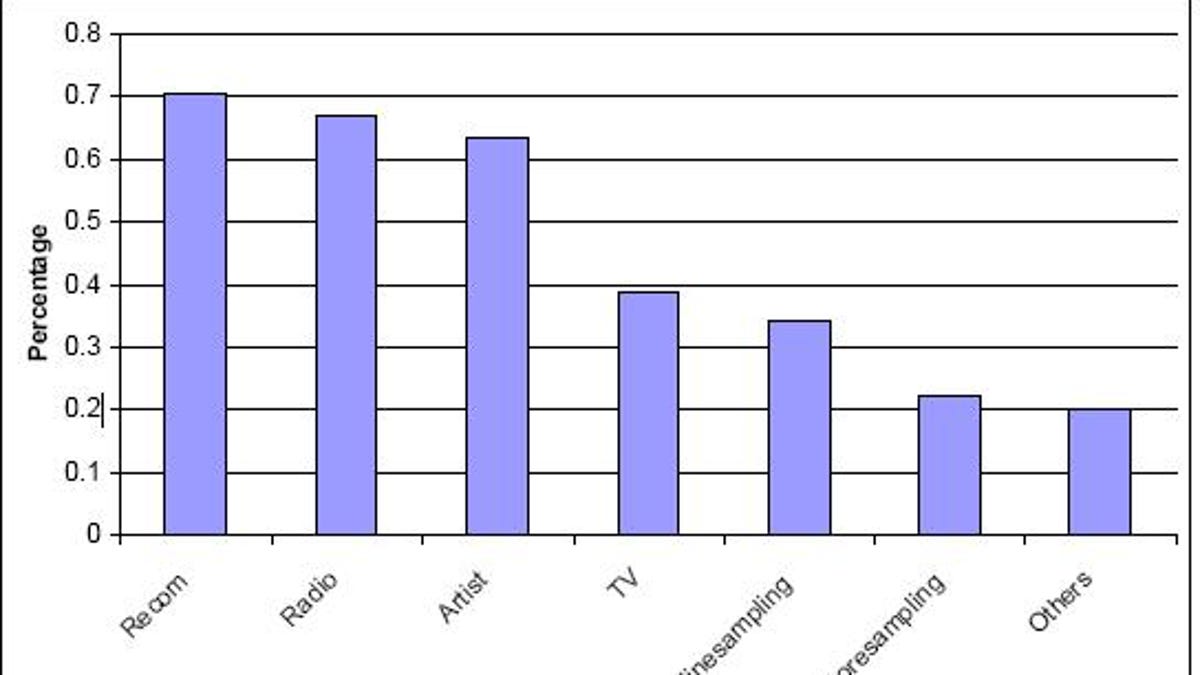Research supports longer iTunes song samples
Two researchers reported that the sweet spot for digital music sampling is around 60 seconds. Apple is expected to boost length of iTunes samples to possibly 90 seconds.

Song samples are no trivial matter, say researchers from Robert Morris University.
Consumers are more likely to buy songs if allowed to sample the music for about 60 seconds and if provided access to a "high-quality" version of the music, said professor Min Lu and assistant professor Yanbin Tu.
"Our empirical tests show the current stingy online digital music sampling [of 30 seconds] is not optimal," the researchers wrote in their in their 28-page report.
Apple is expected to announce, during its media event on Wednesday, that it will boost the length of iTunes' music samples, sources with knowledge of the decision told CNET. The sources said iTunes users will most likely be given up 90 seconds to try out a song, up from the traditional 30 seconds.
Although it remains the overwhelmingly dominant music retailer in the land, Apple is increasingly taking a backseat in the song-purchasing process, according to music industry sources. Other digital music retailers, such as Amazon, also offer 30-second samples. What has happened in the last few years is that for many consumers, music discovery begins with Pandora, a popular free online radio service, or sites that feature music videos, such as YouTube and Vevo. Most of these sites offer full-length songs.
But offering songs in their entirety may not be the answer to whetting a consumer's appetite, according to Yu and Lu's report.
Writing in the International Journal of Internet Marketing and Advertising (available for purchase), the researchers said little has been written about the effects of music sampling on song sales. They set out to answer such questions as, how do consumers behave toward digital music sampling and what determines a consumer's music evaluation and willingness to pay?
They studied 90 college-age subjects, since that age group does most of the music listening and buying in this country. Not surprisingly, they found that the longer the sample the greater the risk the sample will satisfy a consumer's interest in the music. When offering full-length samples, the risk of attracting "free riders," people who will listen to the sample instead of purchasing the song, skyrockets.
What's important to note is that the test subjects didn't need to listen to entire songs to make decisions. The subjects made up their minds about a tune typically around the 60-second mark.
Song samples present an opportunity for iTunes and other music retailers, according to the researchers. They determined that most of their subjects discovered songs via a friend's recommendation (71 percent). That was followed by radio (67 percent), familiarity with an artist (64 percent), music TV (39 percent), and online music sampling (34 percent).
"Online digital music sampling is ranked as [No. 5], implying that online digital music sampling has not yet been fully utilized as an effective product evaluation channel," the researchers wrote.
And when it comes to learning about new artists, song samples are critical, according to the report. Naturally, consumers are wary about plunking down money on an unknown artist. The researchers concluded increasing sample size is "an effective way for consumers to reduce new product risk."

